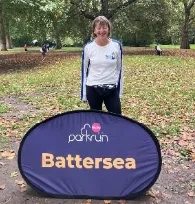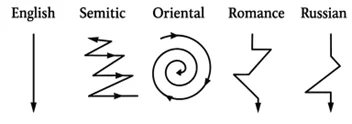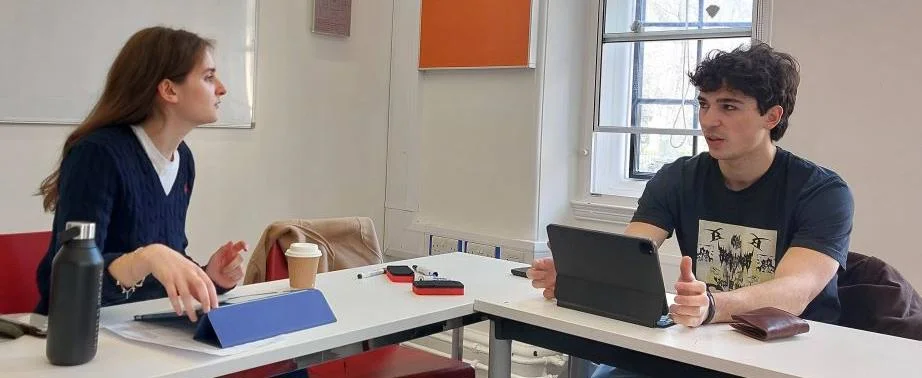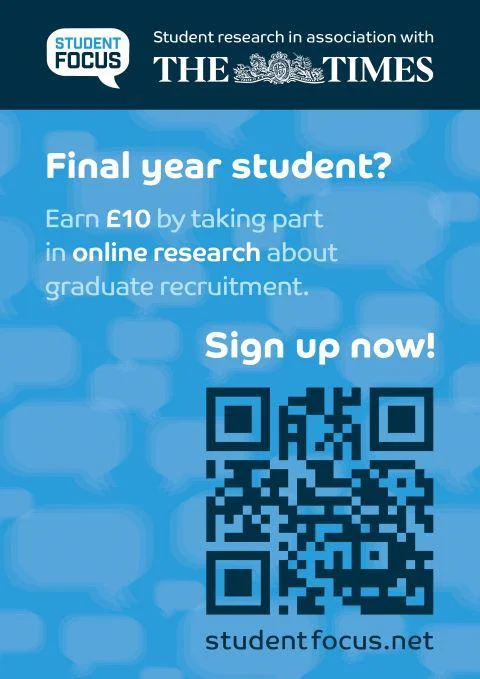2025 Autumn Term Week 8

Welcome to the second edition of our Newsletter for the Autumn Term. In this edition Dr Alison Standring reflects on the essay as an evolving form of assessment, and the Spotlight is on our Careers Adviser, Dr Alex Free - find out where his favourite spot in London is and his advice for a balanced life.
Helen Mayer
Language Community and Communications Manager
Key Dates and Events

Wednesday 26/11/25, 2-3pm, CBG.1.07
This event has been organised by LSE Careers for Language Centre BSc students. This session explores how to build your career with your language and cultural skills. Find out more about Third Bridge and book a place on the session via the LSE CareerHub.
Do check your Hub calendar, events for you should be listed!
Conversation Circles, Bitesize Speaking begins 📚
Week 7: LSE Language Community
All LSE Students
Language Community Get Together 🗣️
Wednesday 19/11/25, 3-4pm: LSE Life Workspace 2
All LSE Students
Language Centre Parkrun 🏃♂️➡️
Saturday 22/11/2025, 9am: Battersea Park
Language Centre students on campus
Third Bridge Q&A session 📚
Wednesday 26/11/25, 2-3pm, CBG.1.07
Language Centre students on campus
End of Term Function 🗣️
Tuesday 02/12/2025, 7-10pm: Ye Olde Cheshire Cheese, Fleet Street
Language Centre students on campus
Ongoing
Careers Drop-ins with Dr Alex Free 📚
Every other Friday (14/11, 28/11, 12/12) 2-5pm, The Little Huddle
Language Centre students on campus
Features
Essays: a test of ideas or just plain trying?
During your time at LSE, you'll write more essays than you can count: formative and summative, coursework and exam-based, short responses and extended arguments. You'll be asked to explain, examine, discuss, evaluate, define, analyse, critique, and compare. But have you ever stopped to wonder what essays actually are, and whether they're really the best way to assess your learning?
A brief history of the essay
The word 'essay' comes from the French essai, meaning 'attempt' or 'try-out.' The French philosopher Montaigne coined the term in the sixteenth century to describe his experimental, reflective writings. However, the practice of exploring ideas through personal prose has deep roots across many cultures, from ancient Greek dialogues and treatises to China's biji ('brush notes') and Japan's zuihitsu ('follow the brush'), traditions that date back over a thousand years.
Interestingly, essays haven't always been the dominant form of university assessment. In medieval Oxford and Cambridge, all examinations were public, oral, and conducted in Latin. The shift from spoken to written assessment happened gradually over the 18th and 19th centuries. Today, essays are the main form of assessment in qualitative disciplines, valued for engaging students in research, critical evaluation, and knowledge development.
Writing across cultures
If you're an international student, you may have noticed that essay writing conventions vary significantly across cultures. Back in 1966, linguist Robert Kaplan identified five distinct models for structuring arguments. He claimed that English academic writing typically follows a linear, direct path: state your thesis upfront, then support it with a clear hierarchy of points. By contrast, he suggested that Semitic writing traditions favour parallel propositions and narrative embedding; Oriental writing tends to be circular and indirect; and Romance and Russian writing embrace digression, leading readers on a more winding journey toward the conclusion.

Patterns of Written Discourse (Kaplan, 1966:14)
Kaplan's model has been criticised for oversimplifying cultural differences and overlooking the multicultural resources that students bring with them, but it remains a useful reminder that there's no single "correct" way to construct an argument. Different rhetorical traditions reflect different ways of thinking.
The future of the essay
When it comes to assessment, some believe essay writing will remain a critical part of university education, but others see the essay as increasingly vulnerable to issues of authenticity and relevance (Gordon & Compton, 2024). Perhaps the age of AI will bring us full circle, revitalising oral assessment methods that haven't dominated university life since medieval times. Whether that happens or not, one thing is certain: the essay's future depends on our willingness to question tradition and reimagine what assessment can be.
So the next time you sit down to write an essay, remember: you're participating in a centuries-old tradition that's still evolving. And your essay, like Montaigne's original essais, is ultimately an attempt: a try-out, an exploration, a way of thinking on the page.
Deputy Director | LSE Language Centre
- Favourite part of London: Anywhere with a good view of Tower Bridge – it’s an amazing sight.
- Favourite spot on campus: The top of the CKK building, because you can get some great views of the London skyline.
- Advice for balancing life: I’d suggest trying to balance being open to external influences while staying sensitive to your own internal compass. It’s easy to feel pressured to do certain things in life (or even that you are deficient in some way) because of outside expectations, but true success comes from knowing yourself, your wants and needs, and forging a path that feels authentic.
- Best thing about my job: Undoubtedly the sense of helping people and seeing the immediate impact that often results.
- Hobbies: I like to go on long walks and do calisthenics exercises.
- Favourite season: I really enjoy the two UK seasons that aren’t extremes – Spring and Autumn. Probably Spring on balance, because of the bright clear skies (UK rain permitting...) and the promise of Summer, without the discomfort of heat!
- Last book I read: King Leopold’s Ghost by Adam Hochschild. It’s a harrowing account of greed, terror and heroism in colonial Africa, detailing the atrocities inflicted on the people of the Congo under King Leopold II, who ran Central Africa as his personal fiefdom.
Dr Alex Free
Careers Consultant | LSE Careers
LSE is a member of CIVICA, an alliance of ten leading European social science universities working together to enhance education, research, and student support.
LSE Library has collaborated with other university libraries to create a short survey exploring how students search for information for their assignments. It takes about 10 minutes to complete, and your feedback will help improve library services across CIVICA universities.
Thank you for helping shape the future of library support for students.
Updates
Conversation Circles and Bitesize Speaking sessions have just begun. We have sessions in Arabic, French, German, Mandarin, Russian and Spanish. Make the most of these extra curricular sessions, some of which are led by our very own BSc students!

There are many events organised by LSE Careers every week. These include:
- Professional development skills workshops
- Workshops on how to pursue further study
- Recruitment events
- Networking events
- Alumni panels
For further information and to register check the CareerHub.
LSESU Active
Following your enthusiasm for the sports offer but the complication of finding a convenient time for all, we would like to continue encouraging you but this time with a different tactic. If you would like to try out a sport all you need to do is:
- Organise a team
- Send an email to Dan Smith, SU Physical Activity and Wellbeing Coordinator, copying in language.centre.teaching.learning@lse.ac.uk
- Write the details (date, time, sport, if instructor is needed) and we will confirm the booking. You can check out the SU sports facilities here.
Contact Inés if you have any questions, suggestions or comments.
